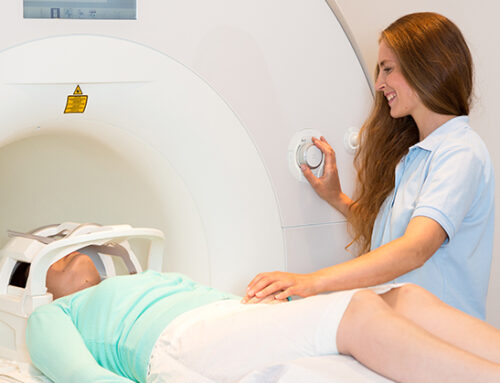Scientists are constantly looking for methods to detect Alzheimer’s at a very early stage, before any obvious signs of memory loss or when the signs are still barely noticeable.
Eye tests, the ability to detect odors, altered speech patterns and vocal effects – all are being investigated to create consistent and reliable detection techniques. And all of those approaches have some merit.
But now a group of scientists has come up with a new indicator – a simple reading test.
Tiny Deficits in Language Ability May Predict Alzheimer’s
Using people with mild cognitive impairment (MCI) as subjects, scientists at two UK universities together with the University of California carried out a trial to test irregularities in brain activity during language processing.
Within seven years of a diagnosis of MCI, eight out of ten will go on to develop Alzheimer’s.
One of the study authors, Dr. Ali Mazaheri explained the idea behind the study:
“A prominent feature of Alzheimer’s is a progressive decline in language, however, the ability to process language in the period between the appearance of initial symptoms of Alzheimer’s to its full development has scarcely previously been investigated.
“We wanted to investigate if there were anomalies in brain activity during language processing in MCI patients which could provide insight into their likelihood of developing Alzheimer’s.”
The researchers focused on language functioning because it’s such an important aspect of cognitive ability, and it’s particularly devastated by Alzheimer’s as the disease progresses.
It was known from previous studies that on average it takes a quarter of a second for the brain to process a written word, so for this study the researchers used an electroencephalogram (EEG), placing electrodes on the heads of 36 people with an average age 73, to detect electrical activity in the brain. Eleven were cognitively healthy while 25 were diagnosed with MCI.
Language Problems Revealed at an Early Stage
With the EEG in place, the participants sat in front of a computer screen while a short phrase was spoken to them . A second later a word was displayed that was either related or not related to it.
For instance. the phrase spoken to them might be ‘a type of wood’ and the word displayed might be oak or horse. This was repeated with a number of phrases and words.
Within three years of testing, 15 of the 25 MCI patients went on to develop Alzheimer’s.
The EEG results revealed that those who progressed from MCI to Alzheimer’s had subtle deficits in language comprehension that weren’t seen in those who remained stable. The researchers believe this breakdown in brain networks that promote the understanding of language could be a future predictor of Alzheimer’s.
Another of the study authors, Dr. Katrien Segaert, said, “Our findings were unexpected, as language is usually affected by Alzheimer’s in much later stages of the onset of the disease.
“It is possible this breakdown of the brain network associated with language…could be a crucial biomarker used to identify patients likely to develop Alzheimer’s.”
She went on to say that the study findings, if validated in a large population of patients, could lead to the development of a low cost, non-invasive test using an EEG as part of a routine visit to the doctor’s office when concerns over memory are first expressed.







